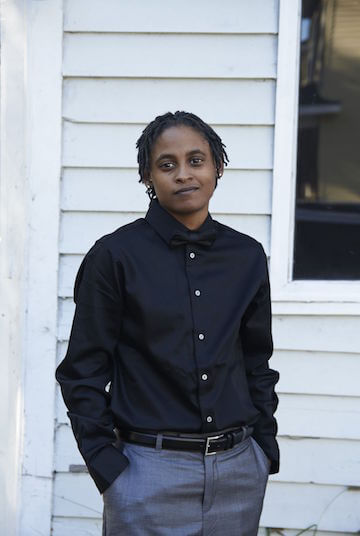The White House has appointed the first openly transgender person to serve as a staff member there, as director of Outreach and Recruitment for the White House Personnel Office. As an attorney and a transgender woman who fights employment discrimination against our community, I am elated for Raffi Freedman-Gurspan. This is a milestone moment.
At the same time, this particular appointment to this particular job –– a trans woman of color to direct outreach and recruiting for our nation’s Executive Office –– should be noted as well. Her prior job at the National Center for Transgender Equality was to make the perspectives and priorities of transgender people of color, and those who live in urban and rural poverty, part of our national policy and advocacy agenda. She worked on reforming dangerous conditions for transgender people in correctional facilities and in immigration detention, many of whom are economically disadvantaged transgender people of color. This kind of intersectional approach, sensitivity to race and class, and understanding of systems of oppression is key to addressing the discrimination that so many in our country experience.
The importance of her appointment lies not only in ensuring that people are hired based on qualifications, rather than job-irrelevant personal characteristics, but also in reminding us that we have far to go in reaching racial and economic justice. While white trans people are subjected to much discrimination, the amount and severity of discrimination suffered by trans people of color is multiplied by the intersection of race, class, and gender, creating a serious crisis in those communities that we have an obligation to address. Unemployment rates, incarceration rates, poverty rates, and other forms of inequality are much higher in trans communities of color.
This appointment builds on the Obama administration’s established positive track record of support for the lesbian, gay, bisexual, and transgender (LGBT) civil rights movement. Among other accomplishments, the administration made two appointments of trans employees in its agencies in 2009. In 2011, the Office of Personnel Management (OPM) issued guidance on equal opportunity for trans workers. In 2012, the Department of Housing and Urban Development issued regulations prohibiting trans discrimination in housing, and the Equal Employment Opportunity Commission issued a decision finding that gender identity discrimination is sex discrimination under the 1964 federal Civil Rights Act. Two executive orders were amended in 2014, one addressing executive branch hiring and the other on hiring by federal contractors, to include gender identity and sexual orientation. This year, OPM announced that health insurers of federal employees must include trans health benefits starting in 2016.
These are welcome changes. However, this latest White House appointment foregrounds the importance of the racial and economic issues that surround the problem of transgender discrimination. These issues must be directly addressed by policy.
In commenting about the White House appointment, the president’s senior advisor, Valerie Jarrett, alluded to the crucial intersectional issues that must be addressed: “Raffi Freedman-Gurspan demonstrates the kind of leadership this administration champions. Her commitment to bettering the lives of transgender Americans, particularly transgender people of color and those in poverty, reflects the values of this administration.”
Freedman-Gurspan has indeed worked to better the lives of transgender Americans, during her years of leadership as a legislative staffer in the Massachusetts State House and through her work as a policy advisor on the racial and economic justice initiative at the National Center for Transgender Equality. She helped pass Massachusetts’ Transgender Equal Rights Law, which had been stymied for years, and it was no easy lift. She has confronted obstacles facing trans Americans in health care, immigration, and the prison system, and understands well the systemic issues of race and gender discrimination that create unequal opportunity and violence in our community.
Freedman-Gurspan’s seat at the White House table underscores the importance of equal opportunity for underrepresented and marginalized people in our cities and counties across this nation, who will now have a new voice through her work and leadership as a transgender woman of color. That voice is particularly crucial given the fact that trans women of color make up the large majority of trans people who are victimized by violence. As of this writing, at least 19 transgender women have been murdered in the US this year.
Our society must address and arrest the ingrained forces of race, class, and gender oppression that plague us. It is not enough to say that our world will eventually evolve into an increasingly more understanding and accepting place for transgender lives. It is, instead, incumbent upon us to take actions, create policies and laws, and bring lawsuits to effectuate them in order to lessen the suffering of transgender people, particularly trans people of color, right now. This will begin to happen as more transgender people like Freedman-Gurspan are elevated to powerful positions in government and the private sector. Her appointment is a step in the right direction.
Jillian T. Weiss is professor of Law & Society at Ramapo College of New Jersey, and the founder of the Law Office of Jillian T. Weiss, P.C., a firm that represents transgender people who have experienced employment discrimination based on gender identity or expression.




































